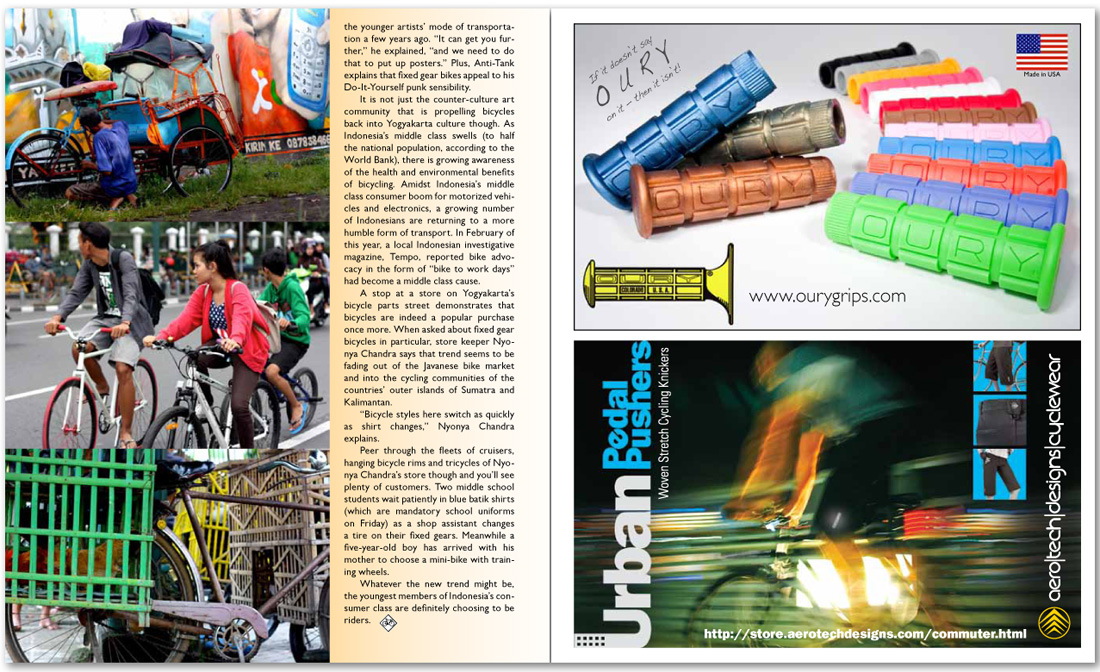


the younger artists’ mode of transportation a few years ago. “It can get you further,” he explained, “and we need to do that to put up posters.” Plus, Anti-Tank explains that fixed gear bikes appeal to his Do-It-Yourself punk sensibility.
It is not just the counter-culture art community that is propelling bicycles back into Yogyakarta culture though. As Indonesia’s middle class swells (to half the national population, according to the World Bank), there is growing awareness of the health and environmental benefits of bicycling. Amidst Indonesia’s middle class consumer boom for motorized vehicles and electronics, a growing number of Indonesians are returning to a more humble form of transport. In February of this year, a local Indonesian investigative magazine, Tempo, reported bike advocacy in the form of “bike to work days” had become a middle class cause.
A stop at a store on Yogyakarta’s bicycle parts street demonstrates that bicycles are indeed a popular purchase once more. When asked about fixed gear bicycles in particular, store keeper Nyonya Chandra says that trend seems to be fading out of the Javanese bike market and into the cycling communities of the countries’ outer islands of Sumatra and Kalimantan.
“Bicycle styles here switch as quickly as shirt changes,” Nyonya Chandra explains.
Peer through the fleets of cruisers, hanging bicycle rims and tricycles of Nyonya Chandra’s store though and you’ll see plenty of customers. Two middle school students wait patiently in blue batik shirts (which are mandatory school uniforms on Friday) as a shop assistant changes a tire on their fixed gears. Meanwhile a five-year-old boy has arrived with his mother to choose a mini-bike with training wheels.
Whatever the new trend might be, the youngest members of Indonesia’s consumer class are definitely choosing to be riders.